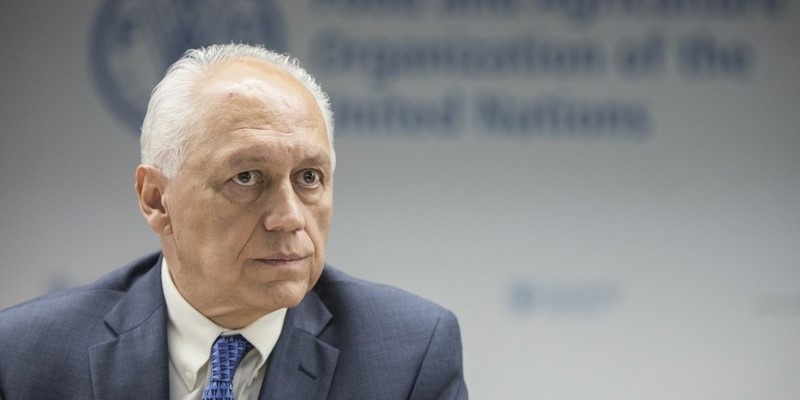Javier Trujillo Arriaga
Posted on Sat, 25 Feb 2023, 18:19

With an academic background in Agronomy/Pest Management, Dr. Javier Trujillo Arriaga’s profession began in 1980 and was shaped within Mexico’s National Plant Protection Organization where he performed field activities during the first three years. Thereafter, he did regulatory work from the headquarters of the Mexican Sanitary and Phytosanitary (SPS) agency.
Quarantine and plant protection were the core of Javier’s 32 years of profession until he retired in 2022. For ten of these years, he led the SPS agency, known as Servicio Nacional de Sanidad Inocuidad y Calidad Alimentaria (SENASICA). For more than 15 years, he was the NPPO contact point for Mexico. As a Bureau member representing the FAO Latin American Region, he also served as Chairperson of the Commission on Phytosanitary Measures (CPM) from 2018-2020.
After retirement, Javier was invited by the Colegio de Postgraduados in Agronomic Sciences of Mexico to develop a graduate course, which will be implemented in the Spring of 2023. The course is envisioned to eventually transition into a program that will channel Javier’s experience as a regulatory official. This will take advantage of Javier’s domestic and international experiences by establishing an academic forum not only for students but eventually for professionals, too. It is expected that the participants in this program will engage in actual SPS work, with the benefit of having previous academic knowledge on the matter.
Javier’s experience with the International Plant Protection Convention (IPPC) cemented his conviction that plant protection is a global good that can only be successful in the global realm if all 184 contracting parties perform on very similar grounds. While globalization of trade of agricultural goods is a great economic driving force, it represents a major threat to the international movement of quarantine pests.
According to Javier, the reality is that there is a clear distance between groups of countries, many of which have the resources to protect their territories and beyond, while many others may have weak areas for replication of historic experiences that were the motivation to create the IPPC. Javier knows that development and adoption of International Standards for Phytosanitary Measures (ISPMs) serve a major role for that purpose. However, the institutional capabilities as well as independence from political decisions are paramount in fulfilling the global obligation of safeguarding the world’s plants.
Javier believes that preventing the spread and introduction of plant pests worldwide is simply essntial while ensuring that quality food is available in every corner of the world, either domestic or imported. Recent events in the areas of Turkey and Ukraine exemplify that even with a robust Strategic Framework, IPPC will continue to face huge challenges. Commodity standards may be of great help to react in a more timely and predictive fashion whenever they are developed, and, fortunately IPPC took the decision to follow this path after a long debate.
“The IPPC community at the national, regional and global levels owes Javier a great debt of gratitude for his unwavering leadership, his generosity of readily sharing his unique and vast experience with his colleagues, his genuine and solid support of producers and consumers, astonishing support of the IPPC mission and simply a great friend to all of us in the IPPC community,’’ said Osama El-Lissy, IPPC Secretary.

